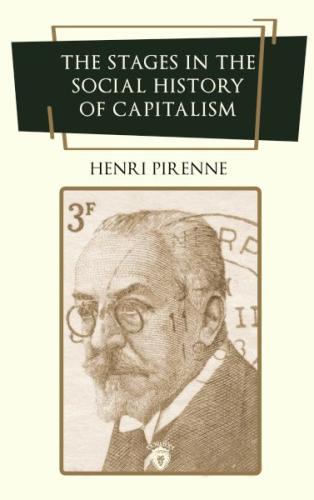
Henri Pirenne; 23 December 1862 – 24 October 1935) was a Belgian historian. A medievalist of Walloon descent, he wrote a multivolume history of Belgium in French and became a prominent public intellectual. Pirenne made lasting contribution to the study of cities that was a controversial interpretation of the end of Roman civilization and the rebirth of medieval urban culture. He also became prominent in the nonviolent resistance to the Germans who occupied Belgium in World War I.
Henri Pirenne's reputation today rests on three contributions to European history: for what has become known as the Pirenne Thesis, concerning origins of the Middle Ages in reactive state formation and shifts in trade; for a distinctive view of Belgium's medieval history; and for his model of the development of the medieval city.
Pirenne argued that profound social, economic, cultural, and religious movements in the long term resulted from equally profound underlying causes, and this attitude influenced Marc Bloch and the outlook of the French Annales School of social history. Though Pirenne had his opponents, notably Alfons Dopsch who disagreed on essential points, several recent historians of the Middle Ages have taken Pirenne's main theses, however much they are modified, as starting points.
Henri Pirenne; 23 December 1862 – 24 October 1935) was a Belgian historian. A medievalist of Walloon descent, he wrote a multivolume history of Belgium in French and became a prominent public intellectual. Pirenne made lasting contribution to the study of cities that was a controversial interpretation of the end of Roman civilization and the rebirth of medieval urban culture. He also became prominent in the nonviolent resistance to the Germans who occupied Belgium in World War I.
Henri Pirenne's reputation today rests on three contributions to European history: for what has become known as the Pirenne Thesis, concerning origins of the Middle Ages in reactive state formation and shifts in trade; for a distinctive view of Belgium's medieval history; and for his model of the development of the medieval city.
Pirenne argued that profound social, economic, cultural, and religious movements in the long term resulted from equally profound underlying causes, and this attitude influenced Marc Bloch and the outlook of the French Annales School of social history. Though Pirenne had his opponents, notably Alfons Dopsch who disagreed on essential points, several recent historians of the Middle Ages have taken Pirenne's main theses, however much they are modified, as starting points.



















